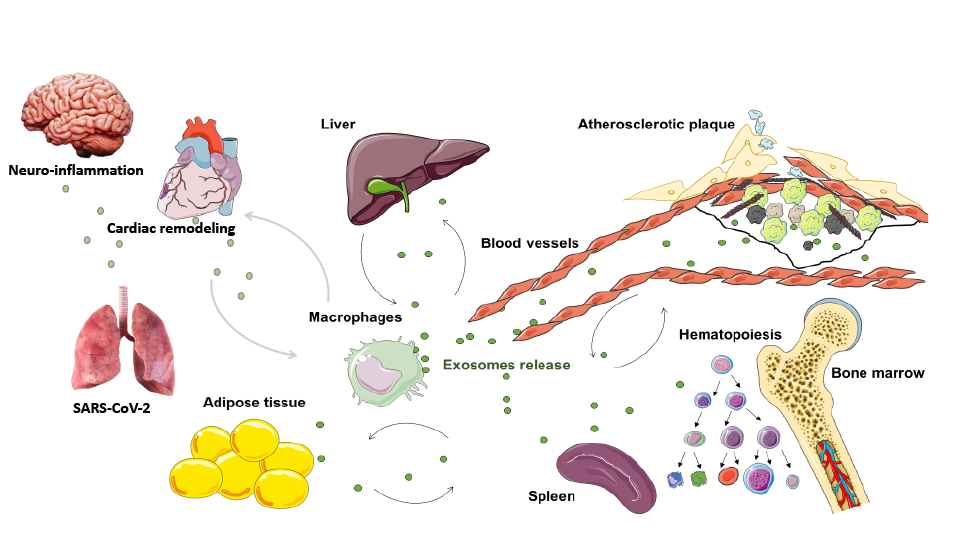About the Lab
About the Lab

Macrophage Exosomes: Endocrine Properties in Cardiometabolic Inflammation & Beyond
Atherosclerosis, the clogging of arteries by deposits of immune cells filled with fat and cholesterol, is a significant cause of cardiovascular disease, especially among individuals with diabetes and people who carry the APOE4 gene. Reducing the rate of atherosclerosis progression has been achieved clinically by lipid-lowering medication, but such therapies are far less effective among individuals with diabetes and those with ApoE4. Our research therefore investigates how diabetes and ApoE4 contribute to enhanced atherosclerosis.
Our projects investigate the interplay between diabetes and ApoE4 on the regulated release of microRNA and metabolites by macrophages into exosomes. We then examine how the diversity in exosome cargo contribute to control the initiation, progression and regression of atherosclerosis in mice. Through methods pioneered in our laboratory, we investigate the intercellular communication between macrophages and cells in various tissues and organ compartments. For example, our studies were the first to show that macrophage exosomes modulate the process of hematopoiesis and leukocytosis to alter the process of atherosclerosis in mice.
Our ongoing studies explore the tropism of macrophage exosomes and their capacity to modulate inflammatory and tissue remodeling responses in organ systems that include; adipose tissue, liver, pancreas, heart, lungs and the brain.
Our vision is to move our macrophage exosome research program into the clinical arena as new biologic treatments for inflammation and metabolic dysfunction within the cardiovascular system and the brain.
